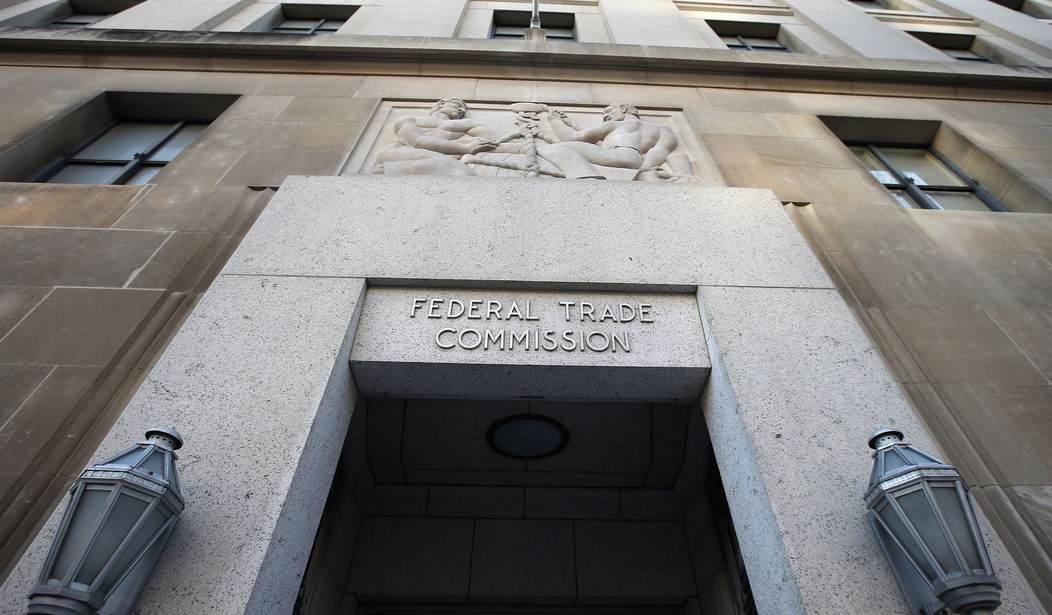The dream of financial independence and success drives entrepreneurs. Small business risk-taking and hard work have been celebrated and rewarded over the years, as their innovative and job-creating capacity generate economic competition and vibrancy. However, under President Biden, heavy-handed government rules and regulation created massive uncertainty and imposed unnecessary barriers to growth. Thankfully, there’s a fresh opportunity to reboot America’s startup and small business ecosystems. Good policy can make that happen.
The 2024 election made clear that voters rejected the Biden Administration’s meddlesome approach that squeezed small businesses and made it challenging to plan for the future. Entrepreneurs want the federal government to move away from big government and the excessive regulatory overreach that inflated prices and stifled opportunity.
With the appointment of Andrew Ferguson as chair of the Federal Trade Commission (FTC), President Trump has signaled the arrival of a more rational regulatory system. This is good news, because former Chair Lina Khan could not seem to grasp how market incentives work, how startups raise capital, the economic dynamics of the digital economy and across various industries, and what entrepreneurs and investors were actually concerned about. A new beginning for the FTC – one that embraces investment, innovation and economic growth – requires the reversal of various actions that harmed small businesses and threatened entrepreneurship during Khan’s tenure.
For example, in December 2023, Khan’s FTC and the Department of Justice (DOJ) released updated merger guidelines that significantly lowered the threshold for mergers to be considered potentially harmful. The guidelines represented an extreme divergence from the consumer welfare standard of the last four decades. By raising the threshold for mergers writ large, the competition agencies have undermined opportunities for innovative startups and small businesses to be acquired, a key goal for many entrepreneurs.
Recommended
In the final months of 2024, the FTC under Khan pushed rulemakings that similarly place the largest burdens on small businesses. Finalized in January 2025, the FTC’s changes to the Hart-Scott Rodino (HSR) premerger notification rules impose significant new disclosure requirements on businesses seeking to merge, which stifle smaller firms’ efforts to scale and compete. Another rule published in November 2024 – the “click to cancel” rule – threatens a useful tool for small businesses and may force many to expend significant time and resources on new technology solutions, staff training, and other costs to ensure compliance with an overly broad and complex rule where it is still unclear whether the FTC had legal authority to act.
But this was the norm under Khan’s leadership. Rulemakings and various actions were pursued outside of regulatory procedure norms, using shoddy economic analysis, and in the face of questionable jurisdiction and authority. More often than not, FTC regulators could not rationalize or convey what problems they were actually attempting to fix. Moreover, FTC regulators were transfixed by what “might happen” (rather than proven consumer harm) and acted as if they had superpowers to foresee the marketplace and innovations of tomorrow.
The FTC and 119th Congress have the opportunity to act. President Trump signed an executive order directing all executive departments and agencies to consider postponing for 60 days any rules that have not yet taken effect. Implementation of rules like the “click to cancel” rule could be delayed depending on the FTC’s actions. Congress can also use its congressional review authority (CRA) power to invalidate these overreaching FTC rulemakings. Representative Scott Fitzgerald (R, WI-5), for instance, introduced this week a CRA resolution of disapproval to repeal the FTC’s new HSR rule and ensure that agency supports, rather than stifles, economic growth. Checks like these are wise steps, as flaws in the rulemaking process are glaring and the economic stakes are high.
Again, U.S. small businesses bear the disproportionate weight of unnecessary or poorly crafted regulation. Instead of fostering a level playing field for entrepreneurs, FTC policies created under Khan have created new barriers and costs. Chair Ferguson and the 119th Congress can forge a more supportive path for businesses by rejecting the heavy-handed and ideological approach of the former FTC Chair and restore a responsive and productive regulatory framework that promotes entrepreneurship and protects small businesses.
Karen Kerrigan is president & CEO of the Small Business & Entrepreneurship Council

























Join the conversation as a VIP Member